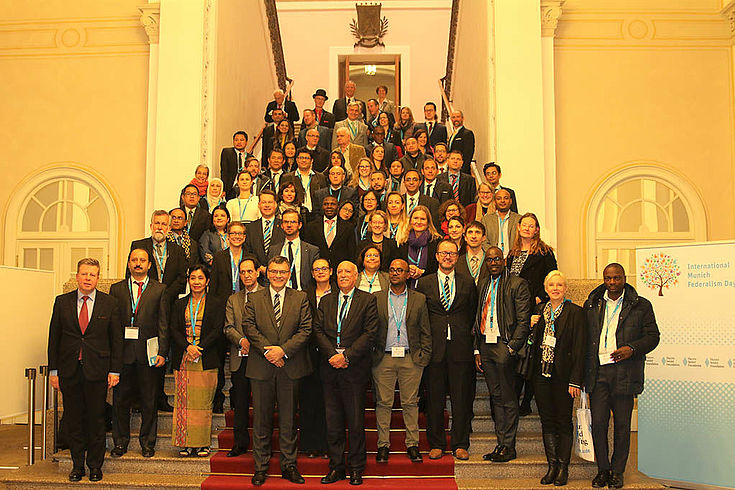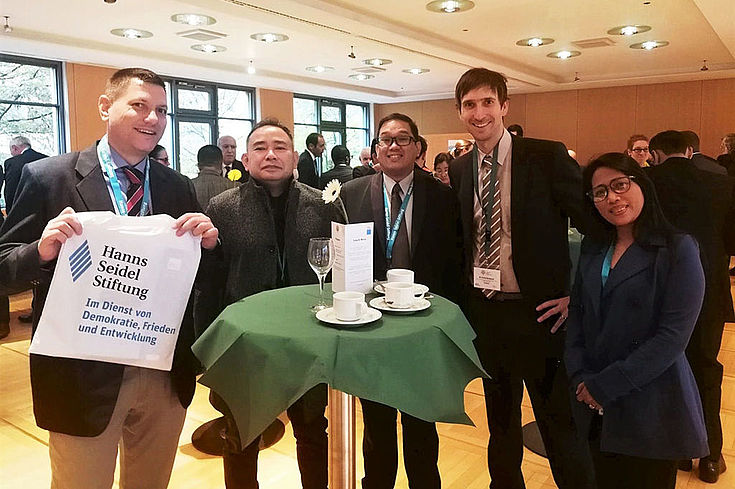International Munich Federalism Days 2019
Analysing federalism from a multi-dimensional perspective
HSF
As various groups in the Philippines continue to discuss the potential benefits of federalism to the country and possible expected as well as unintended challenges its adoption of such a system of government could effect, more than a dozen other countries are also tackling the subject matter under varying circumstances and looking through different lenses.
To provide a venue for a multi-dimensional discourse on the topic, the Hanns Seidel Foundation/Germany organised the International Munich Federalism Days 2019 (IMFD 2019), which was held from 11 to 15 November 2019 in Bavaria Germany. The fifth edition of this international event, the IMFD 2019, explored three conceptual dimensions of federalism: fiscal federalism and financial relations, inter-governmental relations, and local government and governance. Held in part in at the HSF Conference Centre Munich and in part, at the HSF Educational Centre Kloster Banz, it also made possible personal interaction with incumbent government officials in Bavaria and exposure to local culture.
The conference gathered eighty-nine delegates from twenty countries, including members of national/local executive and of legislative bodies; civil servants; representatives of non-government organisations, academic officials, political scientists and scholars from South-/Southeast Asia, Africa/North Africa, Middle East, North/South America and Europe along with representatives from corresponding country offices of the Hanns Seidel Foundation.
The forms of government and political systems taken up during the event ran the gamut from fully federal, fully presidential (some with regionalized unitary systems), to semi-presidential, semi-constitutional/ monarchial and parliamentary republic, all the way to those under military leadership. This made possible the discussion and dissection of decentralization and federalism based on various contexts and historical backgrounds and, thusly, brought together diverse, and sometimes conflicting, views on the topics.
HSF
Amongst the three delegates from the Philippines were a program officer of the Pimentel Institute for Leadership and Governance (PILG), a partner organization of the Hanns Seidel Foundation in the Philippines in working to help increase the awareness of the general public on the federal system of government; the Executive Director of the Philippine Press Institute and an Independent Consultant on Peace Building, Transitional Justice, Economic Empowerment and Regional/Local Autonomy and Governance. As with the other delegates, the representatives from the Philippines gained insightful information about other government systems and picked up best practices for possible consideration for adoption in their own country. They also exchanged ideas and information with Bavarian government officials, witnessed local governance system and experienced the culture. Equipped with increased knowledge on federalism, the Philippine delegates are expected to help in the continuing further dissemination of salient features and principles on federalism, promoting public awareness and understanding on the topic in the Philippines thereby raising the level of discourse in the country.
During the varying activity formats in the programme, participants presented their country situations, proffered personal knowledge and experiences, challenged traditional concepts and widely-held perceptions and solicited advice and fresh perspectives. While some countries were recognised as sources of best practices for federalism and self-determination, it was acknowledged that the differing circumstances under which practices are adopted are bound to produce different results. As populations evolve over time, so do systems and government systems are meant to adapt to the changing needs of the people it is meant to serve. The conference also observed budding advantages of a proactive approach towards maximizing the use of technological advancements in applying federal principles in the digital age.
In the midst of disparate opinions and statements, the participants of the workshop took the joint position that, regardless of differences -- whether these be in relation to language, culture, religion, race, gender, ethnicity, and the like --, people can work together and achieve a common goal, meanwhile embracing their uniqueness, as well as that of others’; hence, “unity in diversities” was coined.
The Hanns Seidel Foundation (HSF) has been gathering experts and practitioners from countries of varied systems of government to exchange experiences and insights about federalism since 2012 through the organization of the IMFD in Germany.


